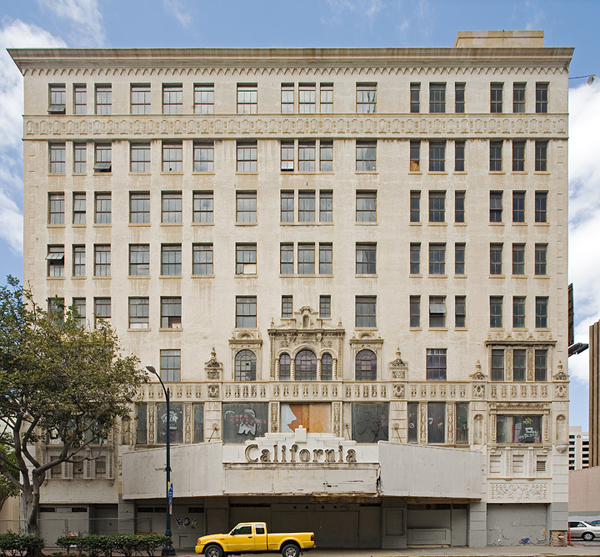|
Preservation Incentives Proposed for San Diego
July/August 2017
By A. Hayes
 The California Theatre, now threatened by demolition, could greatly benefit from these proposed incentive regulations. Photo by Sandé Lollis |
The policy subcommittee of the City of San Diego's Historical Resources Board met on June 19 to discuss historic preservation incentives as part of the 11th update to the City's Land Development Code. If adopted, these proposed incentives will exempt historically designated resources from standard parking and floor area requirements and allow for one or two deviations from zoning regulations such as setbacks, while still maintaining the Secretary of the Interior's Standards.
During the community plan update process for Golden Hill, North Park, and Uptown, SOHO and other community leaders asked the City to include historic preservation incentives to aid the historic designation of more properties and enable projects to better meet the Secretary's Standards. It was alarming that such incentives were not considered initially, but SOHO is pleased to report that the City now appears willing to move forward with them. If adopted, they will offer historic property owners more flexibility and economic savings.
The proposed new preservation-friendly regulations will cover three conditions: parking, gross floor area ratio (FAR), and zoning deviations. Any project that uses these incentives must comply with the Secretary's Standards to maintain the resource's character-defining features, spatial relationships, and historic fabric. Unless someone happens to possess a planning degree, these issues can be quite difficult to understand, which is why a staff member of the City's HRB or Planning Division should always be consulted before an owner makes alterations to a historically designated or potentially historic property (i.e. a property that is 45 years in age or older).
The proposed historic preservation incentives are headed to the Code Monitoring Team (CMT) tentatively on July 12. From there, the full Historical Resources Board will review them, followed by the Planning Commission, and finally the City Council.
|
2025
2024
2023
2022
2021
2020
2019
2018
2017
2016
2015
|




